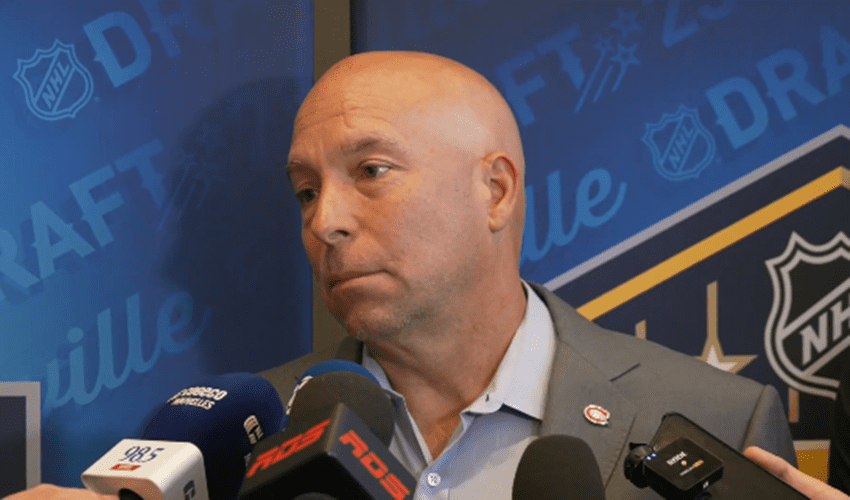Montreal Canadiens
Canadiens Kent Hughes Changing Perception Of Canadiens

Montreal Canadiens general manager Kent Hughes discussed the off-ice details following the trade that sent Jeff Petry to the Detroit Red Wings, answering the question many were asking upon seeing the meagre return.
Why did the Canadiens have to retain 50 percent of Petry’s salary if the team only received a low-level prospect and a mediocre draft pick in exchange?
Asset Management
It was a matter of doing right by the player, rather than maximizing the asset.
“I’m a believer in general, whether it be players or people, that you try to do the right thing,” explained Hughes. “In this case, I called Jeff and explained the situation. They’re a family, they have four young boys, they’re about to start school. I gave him my word. We saw an opportunity to facilitate a trade, but we’re mindful that you have a family and a career, and that Montreal is not where you expected to play. I promised that we would not drag it out trying to move him, without trying to maximize every little value in the deal. I spoke with Jeff, and he was thankful. It’s important, it doesn’t mean we will do things against the organization’s interest, but if we can help ourselves and the player, we will do that.”
Simply put, Hughes understood he put Petry in a difficult position by re-acquiring him from the Pittsburgh Penguins in the Erik Karlsson trade and wanted to rectify the situation as quickly as possible.
On the surface, it’s far from ideal.
By holding onto Petry for a little longer, the Montreal Canadiens probably would have received more than a conditional fourth-round pick at the trade deadline, especially if we consider retaining 50% at the deadline would have meant that almost every team competing for the Stanley Cup could have afforded to add Petry to their lineup at a bargain price.
On top of it all, the Canadiens also used one of their two remaining retention slots, leaving them with fewer options moving forward.
But there’s more to building a team than just asset management.
Public Relations
Asset management is important. It’s crucial. But in this particular case, keeping a disgruntled player in the lineup could have led to more issues down the road, not to mention fewer opportunities for the many young defencemen in the organization.
There was also the possibility that the 35-year-old’s numbers could have cratered, par for the course when it comes to aging defencemen, which would have made moving the Canadiens’ former alternate captain a difficult proposition.
With that in mind, there was a certain risk involved in trying to maximize this particular asset. Yes, the Canadiens could have gambled and perhaps received a second-round pick at the deadline, but again, it was far from a guarantee.
However, there is one guarantee in this whole situation: players around the league will take notice of how Hughes treated the player in question, even if Petry originally left the team on relatively bad terms.
There was no grudge held. There was no passive-aggressive messaging in the press conference. They simply did the right thing from a moral standpoint, without hesitation.
It was a long-term play.
“We hope that over time players will take note and want to play for us,” said Hughes.
And though it certainly came with a cost, for a team that has long been known as a ‘must-miss’ city by superstar free agents, improving the overall perception of the Montreal Canadiens is an important step forward.

